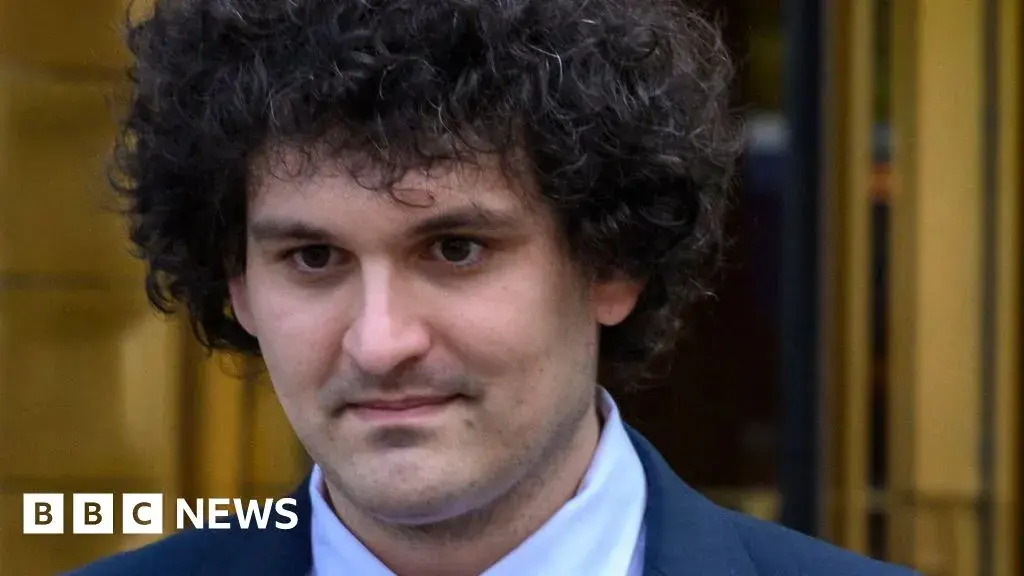The firm says that once it has sold off its remaining assets it will have as much as $16.3bn to cover the debts, which stand at around $11bn.
The company’s new reorganisation plan says almost all of its customers will get at least the total amount they lost when FTX collapsed in November 2022.
In March this year, FTX co-founder Sam Bankman-Fried was sentenced to 25 years in prison for defrauding customers and investors of the now-bankrupt firm.
“We are pleased to be in a position to propose a chapter 11 plan that contemplates the return of 100% of bankruptcy claim amounts plus interest for non-governmental creditors,” said the company’s FTX’s new chief executive, John Ray.
The plan still needs to be approved by a US bankruptcy court.
FTX said it has been gathering the funds to pay its debts by selling assets investments held by Alameda Research or FTX Ventures businesses.
Alameda was a crypto trading firm controlled by Bankman-Fried.
FTX added that a jump in crypto prices since the company failed had not given its finances a major boost. It said almost all of the Bitcoin and other digital currencies believed to have been held by the exchange at the time of its collapse were missing.
The price of the biggest cryptocurrency, Bitcoin, has risen by around 270% since the firm filed for bankruptcy more than a year and a half ago.
FTX was one of the world’s largest crypto platforms before its downfall.
Bankman-Fried enjoyed celebrity status and his platform attracted millions of customers.
After reports that it was in trouble, customers withdrew billions of dollars from FTX, triggering the company’s implosion and laying bare the extent of Bankman-Fried’s crimes.



There seems to be a misunderstanding here. Who’s keeping ill gotten gains? This is like the Madoff case where the investments on paper simply didn’t exist. There are no gains, much less ill gotten gains, that aren’t being returned to victims.
No, people are getting paid based on the value of their investments at the time of the FTX collapse, not tracing back years to when they first deposited funds. That distinction makes a huge difference, especially in a case like Madoff (or the original Ponzi scheme by Charles Ponzi himself).